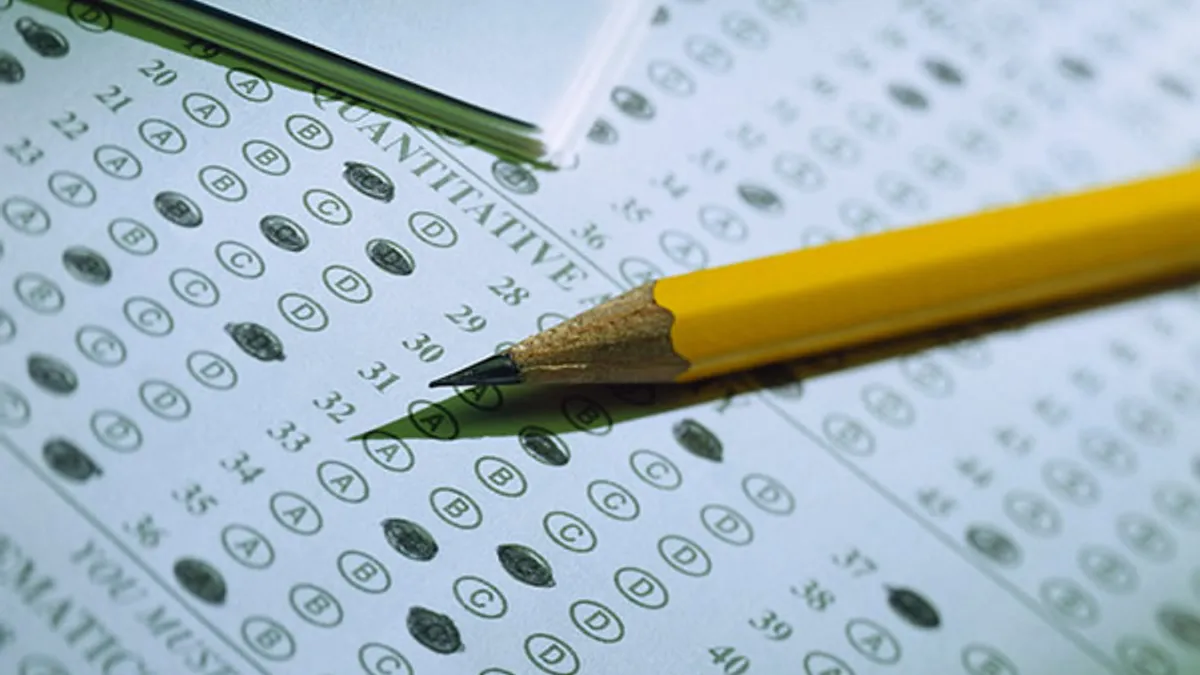Dive Brief:
- In a column open to members of the New York State Boards Association, Board of Regents Chancellor Betty Rosa stated she is open to reexamining the need for the state’s historic Regents exams used to determine fitness for high school graduation, a shift from prior statements made as recently as 2018, Chalkbeat reports.
- Rosa plans to ask the two-year-old Regents Research Work Group, formed to examine issues concerning equity and diversity, to study the research and determine “whether state exit exams improve student achievement, graduation rates, and college readiness.” But no timeline has been set for a decision regarding the exams.
- If the group determines that exit exams increase inequity in schools and fail to determine fitness for college and careers, as some current research suggests, the state may look at other measures of achievement like capstone projects, alternative assessments, or civic engagement, Rosa wrote in her column.
Dive Insight:
The debate over the need for high school exit exams has been raging for more than a decade, and many states have dropped or revised the requirement over time. The idea behind exit exams was to raise student achievement and produce students better-prepared for the rigors of college. However, the implementation has produced unintended consequences, including hidden costs and racial inequities, along the way. And the evidence that these tests improve college and career prospects for students is murky at best.
Parents have been playing a larger role in the discussion of the impact of high-stakes testing requirements in recent years, as well, with more exploring ways to have their students opt out of testing requirements. As a result of recent research and discussion, some states have reconsidered the ultimate value of high school exit exams. New York may now follow that trend.
In 2004, the New York State Education Department produced a policy brief examining the impact of high-stakes exit exams nationwide. That report found the exams resulted in overall academic achievement gains and mixed results when it came to dropout rates. The results were also mixed when it came to effects on student motivation and teacher behavior in terms of curriculum and instruction. But the report did acknowledge the significant increase in cost of both administering the exams and preparing teachers and students for them.
However, other studies indicate that the exams have a greater negative impact on students of color, increasing the achievement gap that has become part of the national discussion regarding equity in education. A research paper produced at Jackson State University in Mississippi in 2009 found exit exams had little effect on overall dropout rates, but had a negative effect on students of color, resulting in higher dropout rates and failure to pass exit exams.
Growing research on the subject has brought more people to the conclusion that exit exams aren't the best way — or least the only way — to demonstrate college- or career-readiness and that they sometimes provide obstacles to graduation for students who don’t fit the typical mold. As more research and discussion has emerged, many states, including Washington and New Jersey, have opted to drop high school exit exams as a requirement for graduation or to offer more alternative pathways in lieu of the testing requirement. In fact, some states have gone so far as to retroactively issue diplomas to students who did not pass high school exit exams.
As of now, according to FairTest.org, just 11 states will require graduation tests for the class of 2020, down from 27 that "had or planned such tests," marking the lowest number since the mid-'90s.






 Dive Awards
Dive Awards








